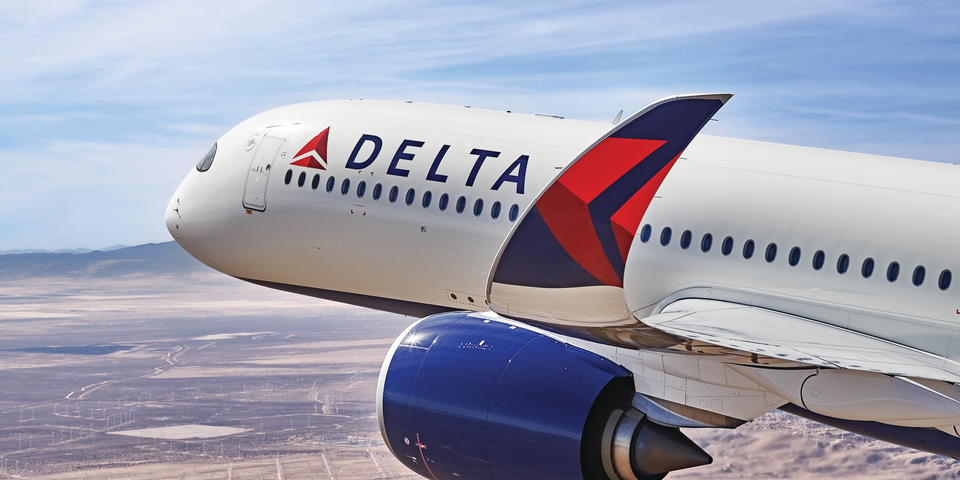
Delta Air Lines, Inc. (NYSE:DAL) showcases a promising growth potential with a target price suggesting a 9.69% increase, backed by a robust market capitalization and an attractive P/E ratio.
Compared to its competitors, Delta’s financial health, characterized by a solid EPS and a reasonable dividend yield, positions it as a standout choice for investors in the airline industry.
The airline’s diversified ticket distribution channels and additional services like aircraft maintenance and vacation packages further enhance its competitive edge and investment appeal.
Delta Air Lines, Inc. (NYSE:DAL) stands as a significant player in the airline industry, with a history that stretches back to 1924. As an airline that offers both passenger and cargo transportation domestically and internationally, Delta has built a vast network centered around key hubs in the United States and extends to major international destinations. This strategic positioning allows Delta to cater to a wide range of customer needs, from business travel to cargo services, making it a versatile player in the market.
Financially, Delta presents an intriguing picture with a stock price of $42.49 and a target price suggesting a growth potential of 9.69%. This growth potential is underpinned by a solid market capitalization of $27.42 billion and a price-to-earnings (P/E) ratio of 5.58, which is relatively low compared to its peers. The earnings per share (EPS) of $6.97 further highlight Delta’s profitability, and a dividend yield of 0.50% adds an additional layer of attraction for investors seeking income alongside capital growth.
When comparing Delta to its competitors, such as American Airlines Group Inc. (NASDAQ:AAL) and Southwest Airlines Co. (NYSE:LUV), Delta’s financial health and growth potential stand out. American Airlines, despite having the highest growth potential among Delta’s peers at 35.73%, struggles with a negative EPS, indicating current unprofitability. On the other hand, Southwest Airlines, known for its extensive fleet of Boeing 737 aircraft, has a much higher P/E ratio of 36.95 and a modest EPS of $0.13, suggesting a different investment profile characterized by higher valuation and lower earnings yield.
Delta’s competitive edge is further solidified by its diversified ticket distribution channels, including direct sales through its website and mobile app, and traditional travel agencies. This multi-channel approach to sales, combined with additional services such as aircraft maintenance, vacation packages, and charter flights, positions Delta as a well-rounded choice for investors looking at the airline sector.
In conclusion, Delta Air Lines, Inc. offers a balanced investment opportunity with solid growth potential, reasonable valuation metrics, and a healthy dividend yield. Its strategic network and diversified services provide a strong foundation within the competitive airline industry landscape.

